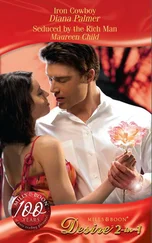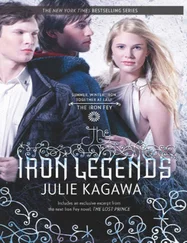A man in a black overcoat swung an axe. With a crash a window burst. He attacked the door, which caved in at the third blow. As if released from a cage, a woman with a baby in her arms flew out of the house, followed by three barefoot children. He let them pass. Then he began to hack at the door-frame. The whole structure creaked.
One of his fellows stepped inside carrying a jerry-can. The woman dashed in after him, emerged with her arms full of bedclothes. But when she tried to make a second foray she was hurled, out bodily.
A new sigh rose from the crowd. Wisps of smoke began to blow from inside the shack. The woman got to her feet, dashed indoors, was again hurled out.
A stone came sailing out of the crowd and fell with a clatter on the roof of the burning shack. Another hit the wall, another landed at the feet of the man with the axe. He gave a menacing shout. He and half a dozen of his fellows stopped what they were doing and, brandishing sticks and bars, advanced on the crowd. Screaming, people turned to flee, I among them, But in the clinging sand, I could barely lift my feet. My heart pounded, pains shot through, my chest. I stopped, bent over, gasping. Can this really be happening to me? I thought. What am I doing here? I had a vision of the little green car waiting quietly at the roadside. There was nothing I longed for more than to get into my car, slam the door behind me, close out this looming world of rage and violence.
A girl, an enormously fat teenager, shouldered me out of her way. 'Damn you!' I gasped as I fell. 'Damn you!' she gasped back, glaring with naked animosity: 'Get out! Get out!' And she toiled up the duneside, her huge backside quaking.
One more such blow, I thought, face down in the sand, and I am gone. These people can take many blows, but I, I am fragile as a butterfly.
Feet crunched past me. I caught a glimpse of a brown boot, the tongue flapping, the sole tied on with string. The blow I shrank from did not fall.
I got up. There was a fight 'of some kind going on to my left; all the people who a minute ago had been fleeing into the bush were just as suddenly pouring back. A woman screamed, high and loud. How could I get away from this terrible place? Where was the pond I had waded across, where was the path to the car? There were ponds everywhere, pools, lakes, sheets of water; there were paths everywhere, but where did they lead?
Distinctly I heard the pop of gunfire, one, two, three shots, not nearby, but not far away either.
'Come,' said a voice, and Mr Thabane strode past. 'Yes!' I gasped, and gratefully struggled after him. But I could not catch up. 'Slower, please,' I called. He waited; together he and I recrossed the pool and reached the path.
A young man came up beside us, his eyes bloodshot. 'Where are you going?' he demanded. A hard question, a hard voice.
'I am going away, I am getting away, I am out of place here,' I answered.
'We are going to fetch the car, ' said Mr Thabane.
'We want to use that car,' said the young man.
'I am not letting anyone have my car,' I said.
'This is a friend of Bheki,' said Mr Thabane. 'I don't care, I am not letting him have my car.'
The young man – not a man at all, in fact, but a boy dressed like a man, bearing himself like a man – made a strange gesture: holding one hand at head-height, he struck it with the other, palm against palm, a glancing blow. What did it mean? Did it mean, anything?
My back was in agony from the walking. I slowed down and stopped. 'I must get home soon,' I said. It was an appeal; 1 could hear the unsteadiness in my voice.
'You have seen enough?' said Mr Thabane, sounding more distant than before.
'Yes, I have seen enough. I didn't come here to see sights. I came to fetch Bheki.'
'And you want to go home?'
'Yes, I want to go home. I am in pain, I am exhausted.'
He turned and walked on. I hobbled behind. Then he stopped again. 'You want to go home,' he said. 'But what of the people who live here? When they want to go home, this is where they must go. What do you think of that?'
We stood in the rain, in the middle of the path, face to face. Passers-by stopped too, regarding me curiously, my business their business, everyone's business.
'I have no answer,' I said. 'It is terrible.'
'It is not just terrible,' he said, 'it is a crime. When you see a crime being committed in front of your eyes, what do you say? Do you say, "I have seen enough, I didn't come to see sights, I want to go home"?'
I shook my head in distress.
'No, you don't,' he said. 'Correct. Then, what do you say? What sort of crime is it that you see? What is its name?'
He is a teacher, I thought: that is why he speaks so well. What he is doing to me he has practised in the classroom. It is the trick one uses to make one's own answer seem to come from the child. Ventriloquism, the legacy of Socrates, as oppressive in Africa as it was in Athens.
I glanced around the ring of spectators. Were they hostile? There was no hostility I could detect. They were merely waiting for me to say my part.
'There are many things I am sure I could say, Mr Thabane,' I said. 'But then they must truly come from me. When one speaks under duress – you should know this – one rarely speaks thr truth.'
He was going to respond, but I stopped him.
'Wait. Give me a minute. I am not evading your question. There are terrible things going on here. But what I think of them I must say in my own way. '
'Then let us hear what you have to say! We are listening! We are waiting!' He raised his hands for silence. The crowd murmured approval.
'These are terrible sights,' I repeated, faltering. 'They are to be condemned. But I cannot denounce them in other people's words. I must find my own words, from myself. Otherwise it is not the rruth. That is all I can say now.'
'This woman talks shit,' said a man in the crowd. He looked around. 'Shit,' he said. No one contradicted Mm. Already some were drifting away.
'Yes,' I said, speaking directly to him- 'you are right, what you say is true.'
He gave me a look as if I were mad.
'But what do you expect?' I went on. 'To speak of this' -I waved a hand over the bush, the smoke, the filth littering the path – 'you would need the tongue of a god.'
'Shit,' he said again, challenging me.
Mr Thabane turned and walked off. I trailed behind him. The crowd parted. In a minute the boy passed me, hurrying. Then the car came in sight.
'It is a Hillman, your car, isn't it,' said Mr Thabane. 'There can't be many left on the roads.'
I was surprised. After what had passed I thought there was a line drawn between us. But he seemed to bear no grudge.
'From the time when British was Best,' I replied. 'I am sorry if I do not make sense. '
He ignored the apology, if that is what it was. 'Was British ever best?' he asked.
'No, of course not. It was just a slogan for a while after the War. You won't remember, you were too young.'
'I was born in 1943,' he said. 'I'm forty-three. Don't you believe me?' He turned, offering me his neat good looks. Vain; but an appealing vanity.
I pulled the starter. The battery was dead. Mr Thabane and the boy got out and pushed, struggling for a footing in the sand. At last the engine caught. 'Go straight,' said the boy. I obeyed.
'Are you a teacher?' I asked Mr Thabane.
'I was a teacher. But I have left the profession temporarily. Till better times arrive. At present I sell shoes.'
'And you?' I asked the boy.
He mumbled something I did not hear.
'He is an unemployed youth,' said Mr Thabane. 'Are you not?'
The boy smiled selfconsciously. 'Turn here, just after the shops,' he said.
Alone in the wilderness stood a row of three little shops, gutted, scorched.' BHAWOODIEN CASH STORE, said the one sign still legible.
Читать дальше












